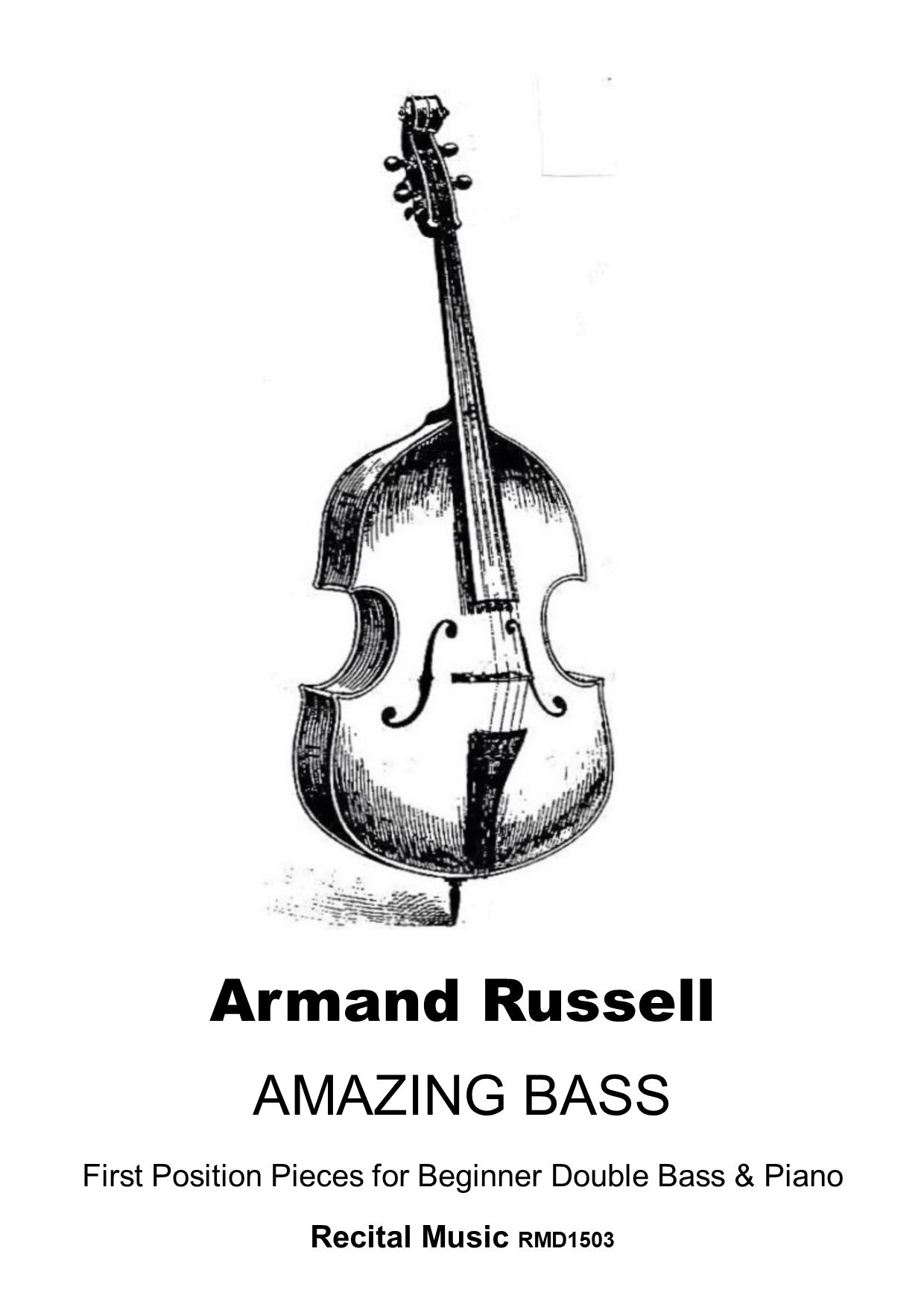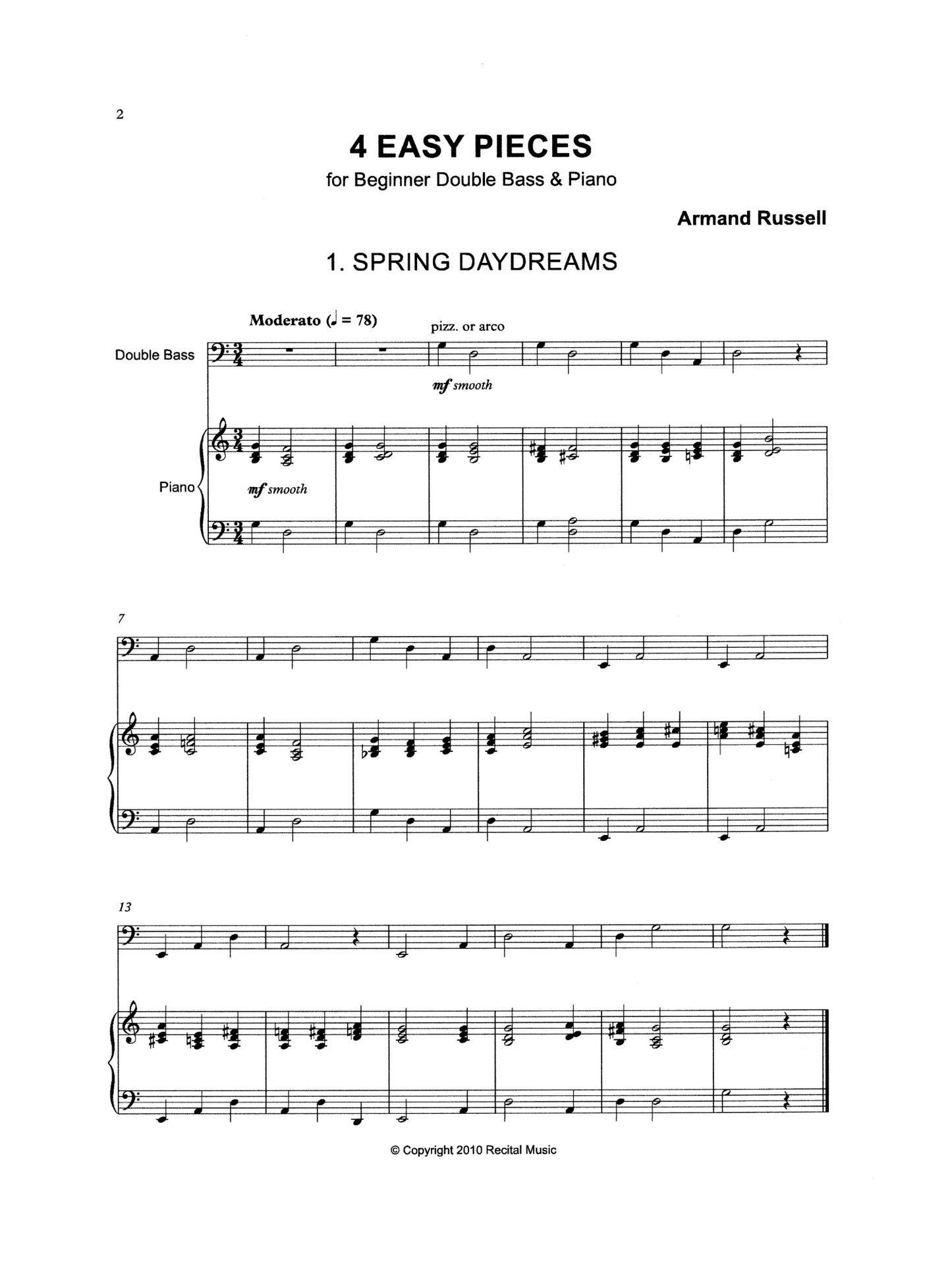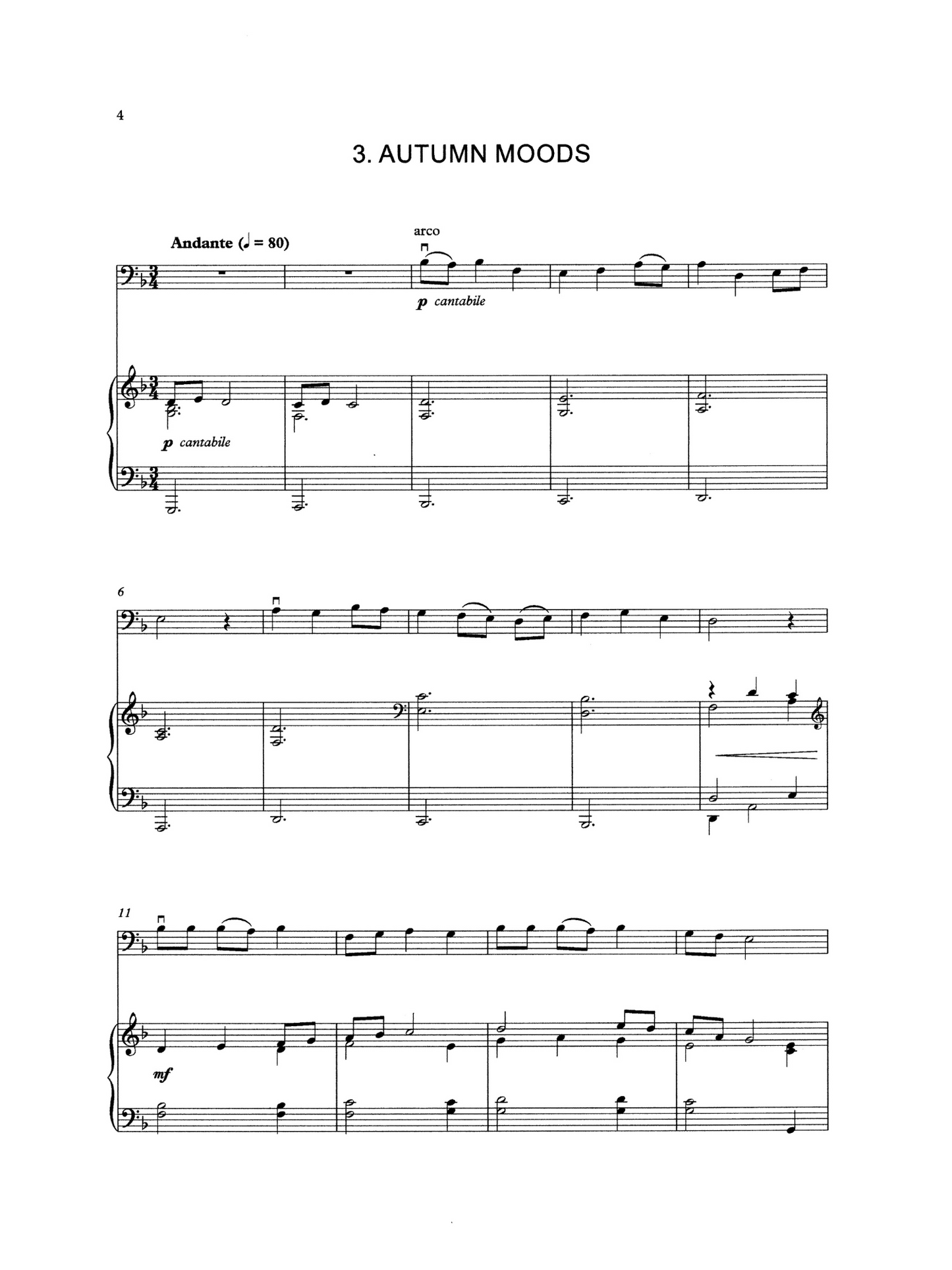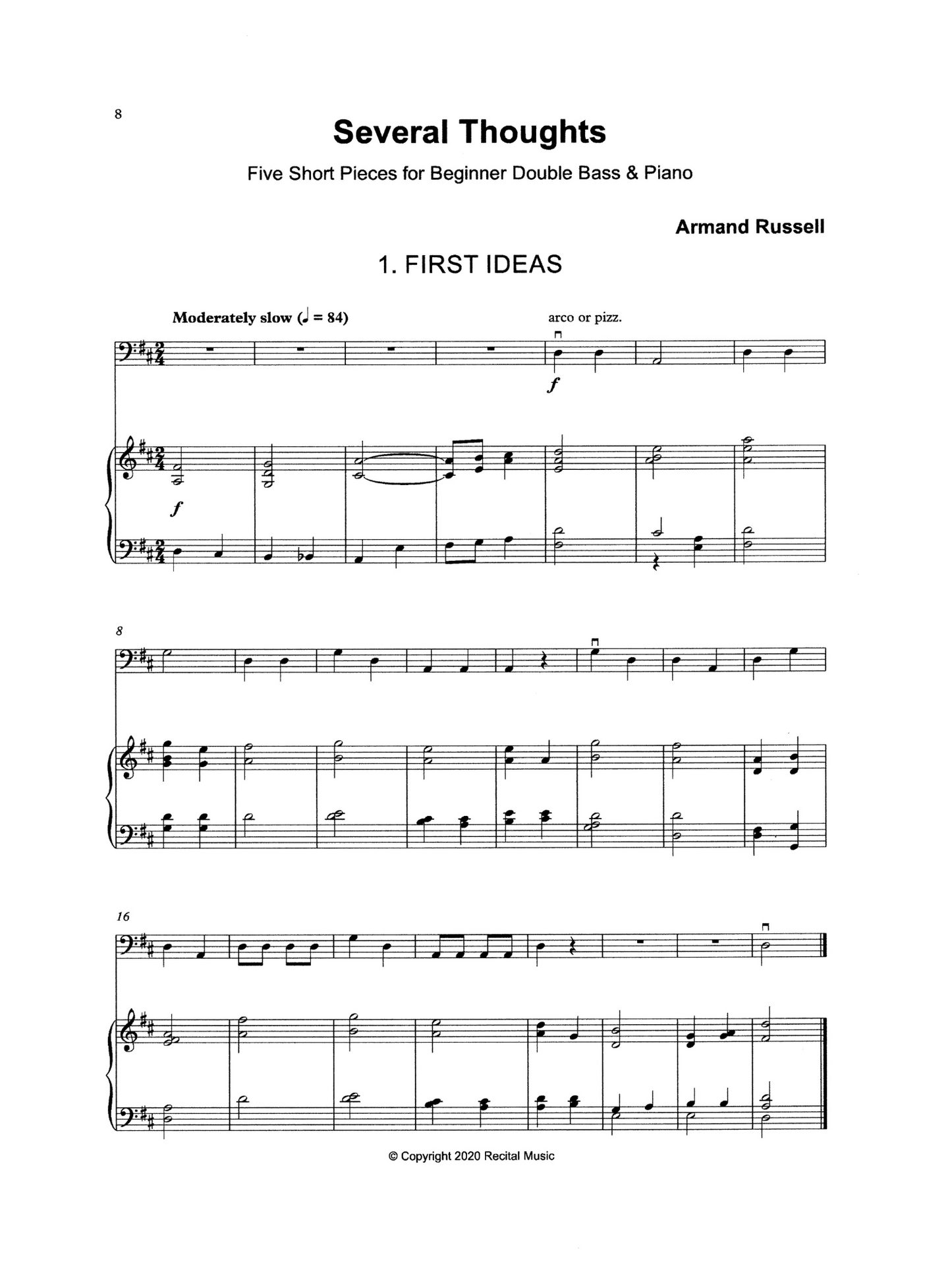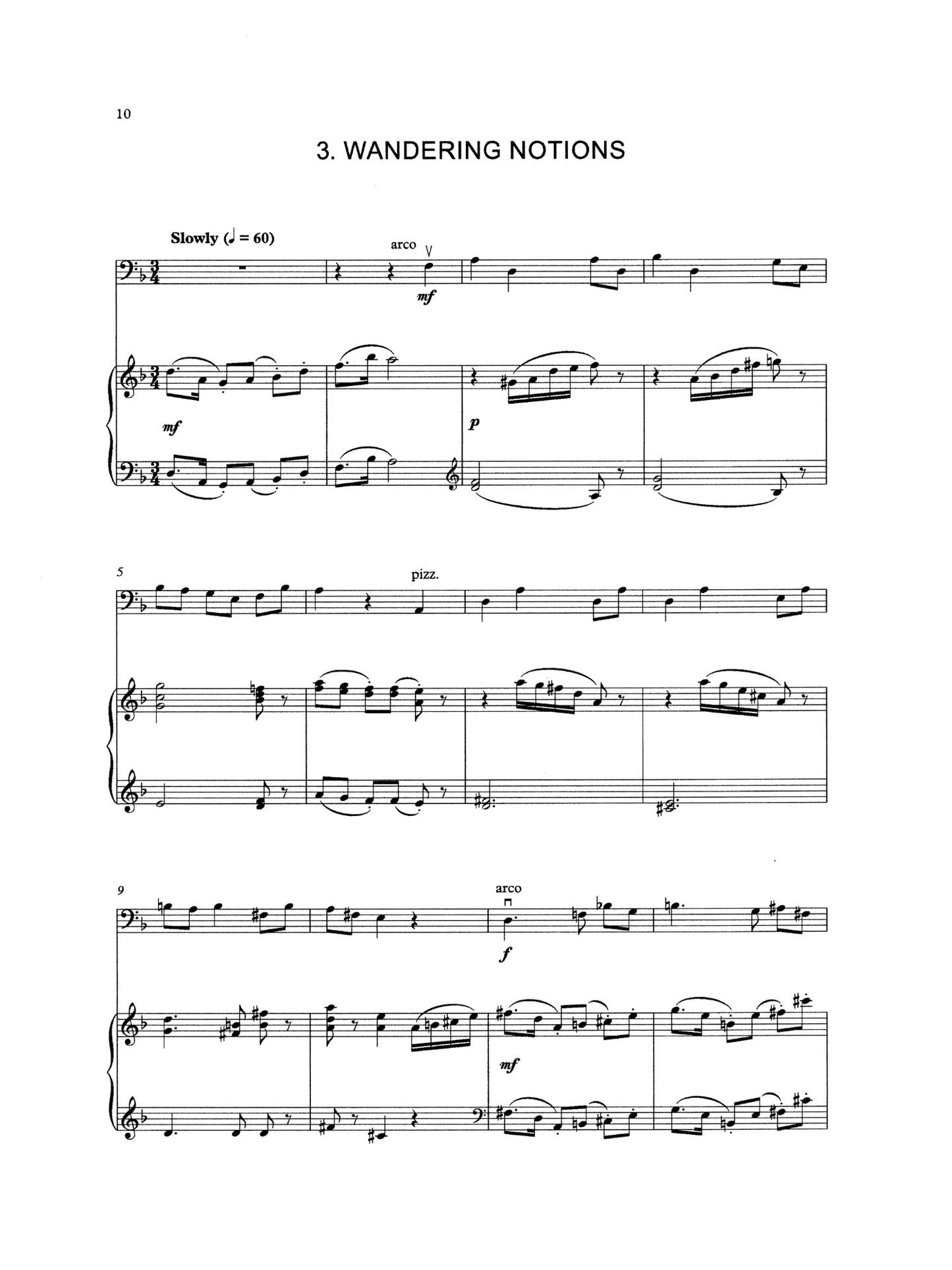David Heyes
Armand Russell: Amazing Bass - First Position Pieces for Beginner Double Bass & Piano
Armand Russell: Amazing Bass - First Position Pieces for Beginner Double Bass & Piano
Couldn't load pickup availability
About the Book
Amazing Bass brings together two suites (4 Easy Pieces / Several Thoughts) for the beginner bassist, nine pieces in total, which combine simple challenges in First Position. Arco and pizzicato are used, alongside a limited number of note values, pitches and keys, to create engaging and colourful music which can also be played an octave higher for bassists starting to play in thumb position.
4 Easy Pieces was composed in late 2009 for BassLines, a new initiative by David Heyes and Recital Music, to create a wealth of music for beginner bassists. Each of the four pieces offers simple musical and technical challenges, with a supportive accompaniment which was written for the bass teacher with some pianistic skills, and would be suitable concert or study material for younger players.
Table of Contents
1. Spring Dreams uses open strings only and can be played pizzicato or arco. The note values are limited to crotchets and minims with a gently moving accompaniment to move the piece gently along.
2. Summer Sports is also for open strings and is a faster and more rhythmic, with a combination of pizzicato and arco challenges. The accompaniment is strong and direct and there are opportunities to develop counting skills here.
3. Autumn Moods uses 1st position only and is a lyrical and cantabile piece with some technical challenges for about grade 1 level. The bass part is limited to 6 notes and three time values in D minor.
4. Winter Games is the longest of the four pieces, but again is limited to 7 notes in 1st position, in the key of D major. The challenges for the bassist make this suitable for about Grade 1/2 level and is a fitting conclusion to this easygoing and enjoyable suite
Several Thoughts
Several Thoughts is a new and exciting suite of five short pieces in First Position for beginner double bass and piano, with piano accompaniments which are both inventive and supportive. Each piece has been written using a limited number of note values and rhythms, encouraging the young bassist to explore a range of simple musical and technical challenges in music which has both an educational and concert appeal. Different key choices create new possibilities with the addition of simple slurs and string crossings.
Table of Contents
1. First Ideas uses open strings, played arco or pizzicato, and the simple accompaniments adds colour and support for a charming piece.
2. Ideas Revisited uses almost the same accompaniment as the first piece, with an elegant melodic line which only uses crotchets (quarter notes) and quavers (eighth notes). Simple slurs are used to create contrast and interest.
3. Wandering Notions has a lively and rhythmic accompaniment, against a simple and straightforward melody. The musical language is inventive and quirky, allowing beginner bassists to develop reading and ensemble skills.
4. Cheerful Music is in 6/8 time and mostly moves by step. The accompaniment is simple and supportive, primarily written in treble clef.
5. Pondering Choices is the most advanced of the pieces, although the solo line is much easier that it first appears. The use of repeated notes is a useful skill for the beginner bassist to learn and a rhythmic energy and momentum brings the piece to a strong, powerful and successful conclusion.
About the Composer
Armand Russell was born in Seattle, Washington in 1932. He received the Bachelor of Arts and Master of Arts degrees from the University of Washington, with a major in music composition, and a Doctorate in music composition from the Eastman School of Music. He studied double bass with Leslie Martin, who played in the Seattle Symphony and Boston Symphony Orchestras, and at the Eastman School of Music with Oscar Zimmerman. His composition studies were with John Verrall and George McKay at the University of Washington, and with Bernard Rogers and Howard Hanson at the Eastman School.
Professionally, Armand Russell played double bass in many orchestras including the Seattle Symphony Orchestra, Boston Pops Tour Orchestra, Rochester Philharmonic and Civic Orchestras, and Honolulu Symphony. For five years he taught as a visiting Professor at the Eastman School of Music. From 1961 to 1994 he taught at the University of Hawaii Music Department and retired as Professor emeritus in 1994. While at the University of Hawaii he taught music theory, composition and double bass and also served as Chair of the Music Department for seven years.
Armand Russell's compositional style is confident and direct with a clarity of line and texture always to the fore. A modern, yet lyrical and accessible style, has created works which communicate equally to performers and audiences alike and he has made, and continues to make, a unique and valuable contribution to the double bass literature throughout a long and successful career.
